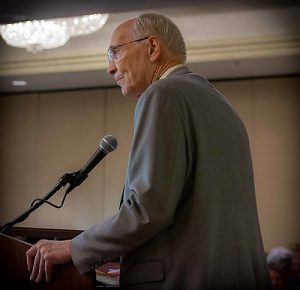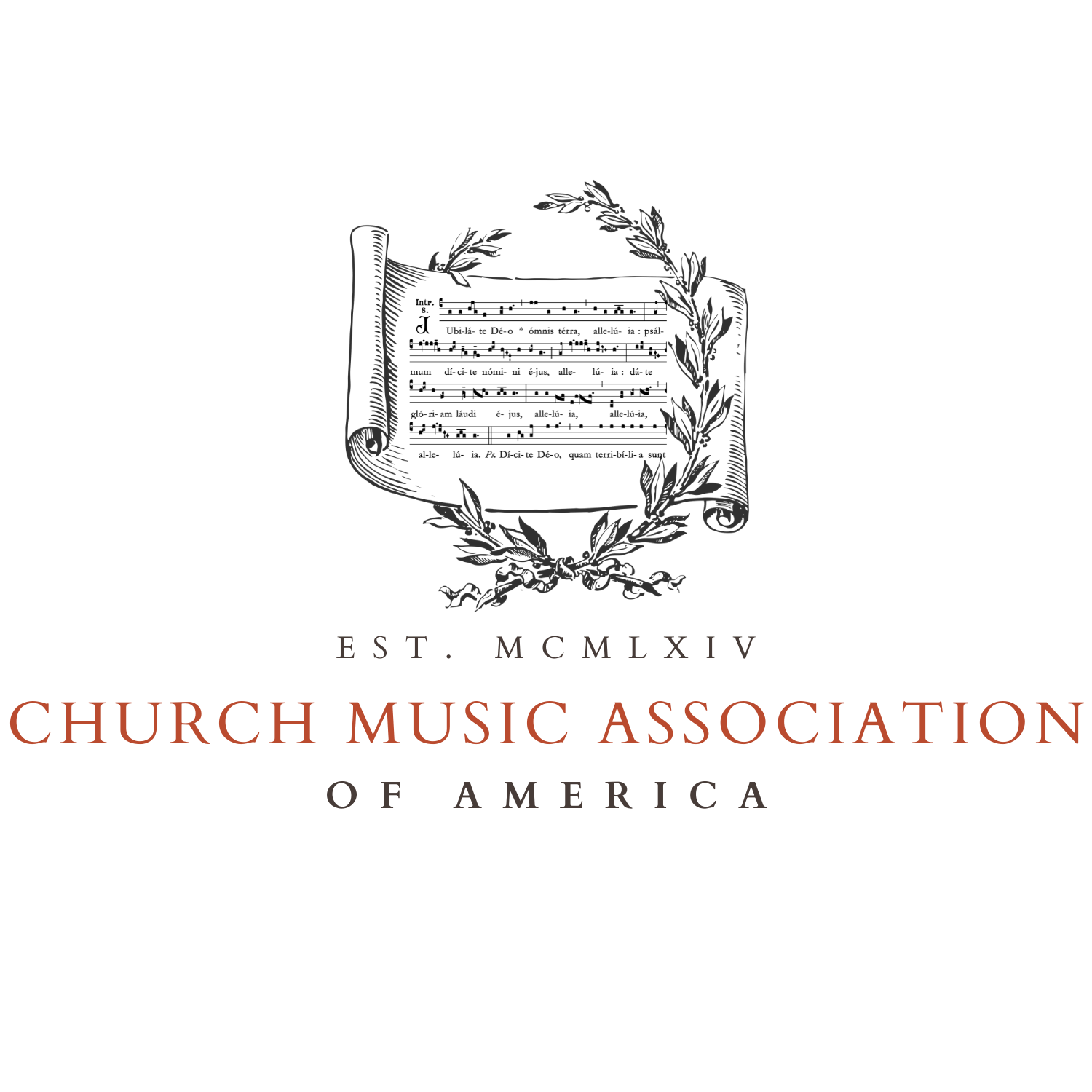
Sacred Music Virtual Colloquium 2021
June 21-25, 2021
REGISTER ONLINE NOW
The Church Music Association of America is proud to invite you to join us in our second Virtual Sacred Music Colloquium. As the world continues to contend with the effects of the worldwide pandemic, the CMAA’s Sacred Music Virtual Colloquium will be designed to provide sessions that will be useful to you during these times of musical restrictions, as well as moving forward toward the future.
Our virtual program offers opportunities for learning, singing, listening, and interacting with some of the best minds and musicians in the Catholic world today! We will offer three tracks for the breakouts this year, with an eye toward providing a broader range of information that you can use to expand your knowledge.
One track will be in Spanish. One English track will be more focused on the basics; the other will address more advanced topics and issues. You can choose from either English track as you wish for each breakout time. The Spanish track will be held on its own day so that more can participate in it. The CMAA Virtual Colloquium will be primarily focused on instruction in topics related to chant, polyphony and the Catholic sacred music tradition, lectures and daily night prayer. We are also pleased to include three plenary talks this year as well. During the week, you’ll be able to participate in all these sessions via your home computer using the Zoom app. At the end of each breakout session there will be a question and answer session.
Virtual Colloquium Highlights
-
- Requiem Mass for Deceased Members of the CMAA
- Plenary talks on Monday, Tuesday, and Thursday.
- Breakout sessions during the week on a variety of topics, from directing, chant modes, organ repertory and improvisation, semiology, chorister programs, vocal pedagogy and hymnody, among others.
- Daily Spiritual Reflections provided by our chaplain, Rev. Robert Pasley.
- Night Prayer – Roman Rite, Extraordinary and Ordinary Form
General Registration Information
Credit card or paypal payment must accompany registration. You may register online at the CMAA Shop website: ONLINE REGISTRATION Download our Attendee Guide: ATTENDEE GUIDE
Schedule
Monday, June 21, 2021
- 4:30 pm (ET) Spiritual Reflection (Rev. Robert Pasley)
- 5:10 pm – 6:25 pm (ET) Welcome and Plenary Address (Dr. William Mahrt)
- 6:45 pm – 8:00 (ET) Vocal Pedagogy (Dr. MeeAe Cecilia Nam) (all tracks)
- 8:15 pm (ET) Night Prayer, Viri Galilei (conducted by David J. Hughes)
- 8:45 pm (ET) Annual CMAA Member Meeting (for current CMAA Members only)
Tuesday, June 22, 2021
- 4:30 pm (ET) Spiritual Reflection (Rev. Robert Pasley)
- 5:10 pm – 6:25 pm (ET) Plenary Talk, Most Reverend Salvatore J. Cordileone, Archbishop of San Francisco (all tracks)
- 6:45 pm – 8:00 pm (ET) Chant Modes (Nicholas Lemme) (Beginner track)
- 6:45 pm – 8:00 pm (ET) Preparation of Music Editions (David Hughes) (Advanced track)
- 8:20 pm – 9:35 pm (ET) Vocal Training of the Young Voice (Dr. Lucas Tappan) (Beginner track)
- 8:20 pm – 9:35 pm (ET) Psalm Foundation of the Propers (Dr. William Mahrt) (Advanced track)
- 9:55 pm (ET) Night Prayer, Schola Cantorum of the Brompton Oratory (conducted by Charles Cole)
Wednesday, June 23, 2021 (Spanish Track)
- 6:45 pm – 8:00 pm (ET) The Proper of the Mass (Mario Esmildo)
- 8:20 pm – 9:35 pm (ET) Sacrosanctum Concilium (Jose Ballon)
Thursday, June 24, 2021
- 4:30 pm (ET) Spiritual Reflection (Rev. Robert Pasley)
- 5:10 pm – 6:25 pm (ET) Plenary Talk (Rev. Joseph Koterski, S.J.) (all tracks)
- 6:45 pm – 8:00 pm (ET) Mastering Mocquereau’s Method (Dr. Jennifer Donelson-Nowicka) (Beginning track)
- 6:45 pm – 8:00 pm (ET) Child Oblates and Young Singers in the Medieval Liturgy (Susan Boynton) (Advanced track)
- 8:20 pm – 9:35 pm (ET) Singing the Scriptures: Cantillation of the Latin Epistle and Gospel in the Medieval Mass (Joseph Dyer) (Beginning track)
- 8:20 pm – 9:35 pm (ET) Building up the Choral Sound (Dr. Horst Buchholz) (Advanced track)
- 9:55 pm (ET) Night Prayer
Friday, June 25, 2021
- 11:00 am (ET) Requiem Mass for deceased members of the CMAA, Rev. Robert Pasley, Mater Ecclesiae Parish, Berlin, NJ (will be live-streamed on the CMAA YouTube channel – no pre-registration required)
- 4:30 pm (ET) Spiritual Reflection (Rev. Robert Pasley)
- 5:10 pm – 6:25 pm (ET) Young Choristers (Mary Ann Carr Wilson) (Beginning track)
- 5:10 pm – 6:25 pm (ET) Polyphonic Mass Ordinaries for the Parish Choir (Dr. Timothy McDonnell) (Advanced track)
- 6:45 pm – 8:00 pm (ET) Parish Organ Techniques (Bruce Ludwick) (Beginning track)
- 6:45 pm – 8:00 pm (ET) Advanced Organ Techniques (Christopher Berry) (Advanced track)
- 8:20 pm – 9:35 (ET) Beginning Semiology (Dr. Edward Schaefer) (Beginning track)
- 8:20 pm – 9:35 (ET) Hymnody (Dr. Susan Treacy) (Advanced track)
- 9:55 pm (ET) Night Prayer
FACULTY
Jose Ballon
 Jose Ballon Vasquez will present a breakout session in Spanish: Sacrosanctum Concilium: Understanding the Church’s Legislation on Sacred Music. Jose Ballon Vasquez serves as the Choirmaster for the Traditional Latin Mass Community of Miami Florida, where he established the Schola Miamiensis. A graduate of Florida International University with a B.M. in Music Education, his main focus of study has been sacred music and popular music.
Jose Ballon Vasquez will present a breakout session in Spanish: Sacrosanctum Concilium: Understanding the Church’s Legislation on Sacred Music. Jose Ballon Vasquez serves as the Choirmaster for the Traditional Latin Mass Community of Miami Florida, where he established the Schola Miamiensis. A graduate of Florida International University with a B.M. in Music Education, his main focus of study has been sacred music and popular music.
In 2013, Jose started out as a singer for the Schola Cantorum of St. Francis and St. Clare under the direction of Dr. Jennifer Donelson–Nowicka, where he received an immersive experience into Gregorian Chant and other Catholic Sacred Music. During his time at Florida International University, he studied choral conducting under Dr. Kathryn Longo, and jazz voice under Dr. Lisanne Lyons. Jose has also performed with the Miami Collegium Musicum under the direction of Dr. Donald Oglesby, and the Choir of the Cathedral of St. Mary under the direction of Mr. Gustavo Zayas.
In 2016 he established a second Schola Cantorum at Our Lady of Lourdes Catholic Church, where they sing for a Sung Mass in the Extraordinary Form every month. In 2020, he had the honor of participating as a moderator in the Virtual Sacred Music Colloquium organized by the Church Music Association of America and as a presenter for the Fall Sacred Music Boot Camp.
He currently lives in Miami, Florida with his family.
Christopher Berry
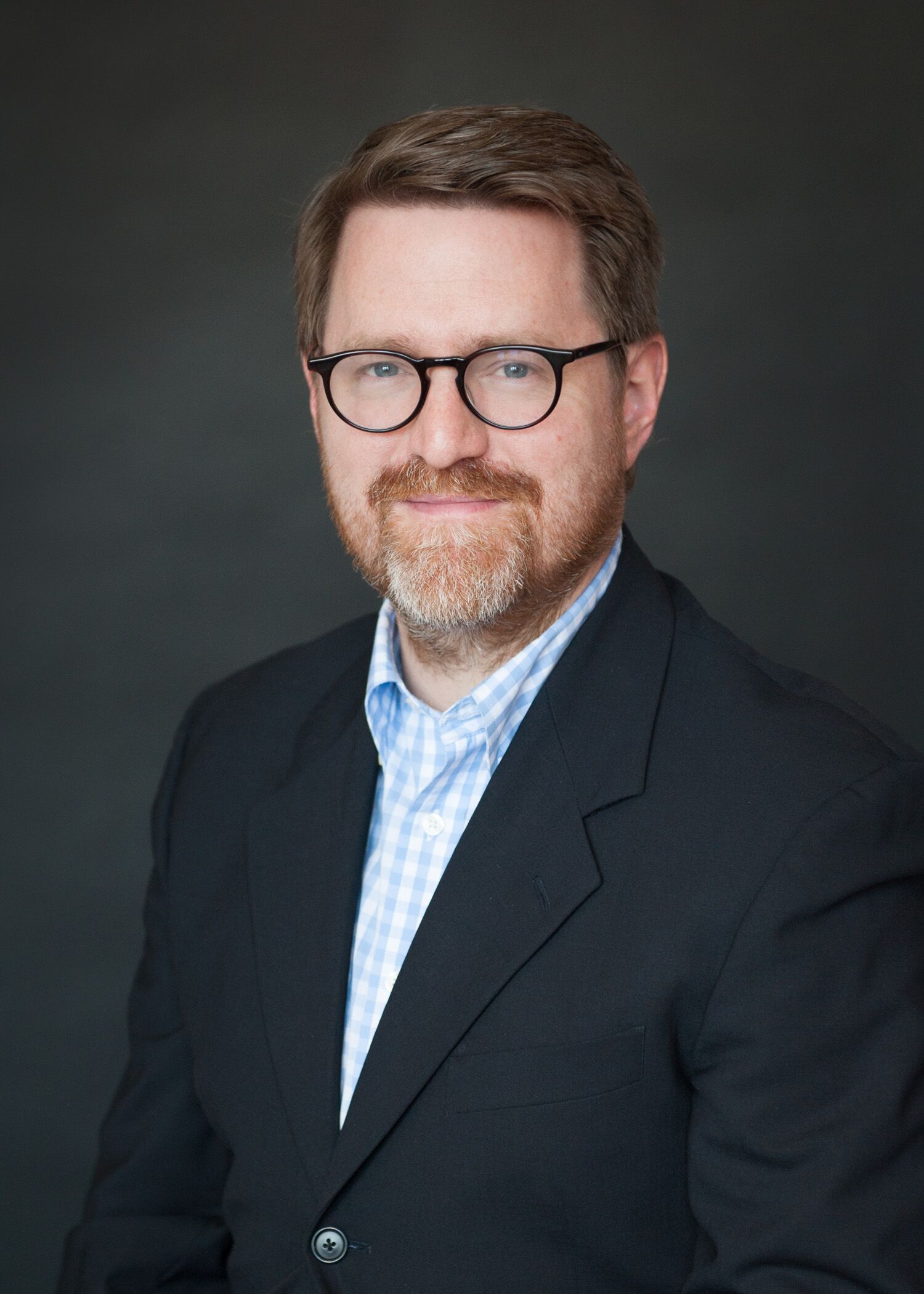 Christopher Berry joins the Colloquium faculty and will present a breakout session on Advanced Organ Technique on Friday, June 25, 2021. Christopher Berry is the Director of Sacred Music and Organist at St. Stanislaus Oratory in Milwaukee, WI, which, under the direction of the Institute of Christ the King Sovereign Priest, is dedicated to the Extraordinary Form of the Mass.
Christopher Berry joins the Colloquium faculty and will present a breakout session on Advanced Organ Technique on Friday, June 25, 2021. Christopher Berry is the Director of Sacred Music and Organist at St. Stanislaus Oratory in Milwaukee, WI, which, under the direction of the Institute of Christ the King Sovereign Priest, is dedicated to the Extraordinary Form of the Mass.
Mr. Berry was immersed in French organ music from his first years of study with Jesse Eschbach at the University of North Texas. During his undergraduate studies he spent a summer in Paris studying with Marie-Claire Alain and Marie-Madeleine Duruflé. He furthered his study of French organ music during a scholarship year in Paris where he received a Premier Prix at Rueil-Malmaison Conservatory under the direction of Francois-Henri Houbart, organist of the Madeleine church in Paris. During this time, he honed his improvisation skills with Sophie-Veronique Choplin.
Mr. Berry’s time in Paris sparked an interest in the study of chant when he had the opportunity to study Gregorian chant conducting at the Paris Conservatory with Louis-Marie Vigne. Mr. Berry also sang with the Choeur Gregorien de Paris under the direction of Mr. Vigne. He is often engaged to lead chant workshops and presentations – recently for the Sacred Music Retreat in Sleepy Eye, MN, and for the Archdiocese of Milwaukee.
Mr. Berry has built a reputation for his expertise as an organist and choral conductor working in grand spaces. At the Basilica of the National Shrine of the Immaculate Conception he was organist for numerous televised liturgies under the direction of Peter Latona. He introduced Gregorian Propers and Renaissance polyphonic ordinaries at Holy Trinity RC in New York, working with some of the finest musicians in the city. During his tenure at the Pontifical North American College, he conducted masses at St. Peter’s Basilica, a private concert for patrons of the Chicago Symphony in the Sistine Chapel , and completed a recording for JAV of the Duruflé Messe “Cum jubilo” and Propers for the Immaculate Conception entitled Regina Immaculata. He has led two choir tours of England with the Church of the Incarnation Choir in Dallas, with residencies at Westminster Abbey, Lichfield Cathedral, and St. George’s, Windsor.
Prior to his work at St. Stanislaus, Mr. Berry spent 8 years building an impressive choral program at the Basilica of St. Josaphat in Milwaukee, which can be heard on the recording Pax Tibi. He currently teaches Organ at Carthage College in Kenosha, WI and maintains an active private teaching studio.
Susan Boynton
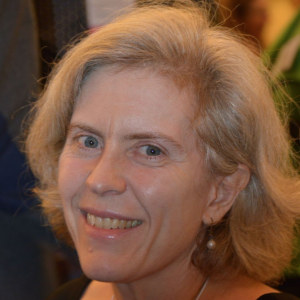 Susan Boynton will present a breakout session on Child Oblates and Young Singers in the Medieval Liturgy.
Susan Boynton will present a breakout session on Child Oblates and Young Singers in the Medieval Liturgy.
Susan Boynton joined the Columbia faculty in 2000. Her research interests include liturgy and music in medieval Western monasticism, particularly the abbey of Cluny; manuscript studies; music in the Iberian peninsula; music and childhood; and intersections of music with the visual arts. Boynton has published seven books. The first, Shaping a Monastic Identity: Liturgy and History at the Imperial Abbey of Farfa, 1000-1125 (2006), won the Lewis Lockwood Award of the American Musicological Society. Her second monograph, Silent Music: Medieval Song and the Construction of History in Eighteenth-Century Spain (2011), won the Society’s Robert M. Stevenson Award. Prof. Boynton coedited (with Diane J. Reilly) The Practice of the Bible in the Middle Ages (2011). Also coedited with Diane J. Reilly, Resounding Images: Medieval Intersections of Art, Music, and Sound (2015) won the American Musicological Society’s Ruth A. Solie Award. Boynton’s other coedited volumes include From Dead of Night to End of Day (2005), with Isabelle Cochelin, Musical Childhoods and the Cultures of Youth (2006), with Roe-Min Kok; and Young Choristers, 650-1700 (2008), with Eric Rice. Boynton’s articles have been published in The Journal of the American Musicological Society, Speculum, Viator, Traditio, and other leading journals in musicology and medieval studies; she has contributed invited chapters to numerous edited volumes.
In 2020, Boynton was named a Chevalier of the Ordre des Palmes Académiques, an honor awarded by the Prime Minister of France on the recommendation of the Minister of Education. Boynton is also a recipient of Columbia’s Distinguished Faculty Award. Her research has been supported by fellowships from the American Council of Learned Societies, the National Endowment for the Humanities, the American Academy in Rome, the Institute for Advanced Study in Princeton, and the Trinity Long Room Hub Arts and Humanities Research Institute.
Boynton is deeply involved in medieval art history through her research, teaching, and editorial activities. In addition to coediting the award-winning book Resounding Images, she has published several essays on the visual arts, including “The Visual Representation of Music and Sound,” in The Routledge Companion to Medieval Iconography, ed. Colum Hourihane (2016). She is currently coeditor (with Diane J. Reilly) of the medieval art history journal Gesta, published by the University of Chicago Press for the International Center of Medieval Art. With art historian Anne-Orange Poilpré of the University of Paris, she has organized international workshops for graduate students on the study of images in the humanities, funded by the grants from the Aliiance Program. From 2016-19, Boynton was the Columbia Project Leader of FAB-Musiconis, a Franco-American digital humanities and musical iconography exchange codirected with Frédéric Billiet of Paris-Sorbonne University and supported by the Partner University Fund of the FACE Foundation. In 2021, she spoke on musical iconography in the the Sacher Distinguished Lecture at the Cali School of Music, Montclair State University: see the video, “Pictures Worth a Thousand Words,” here.
Boynton continues to pursue her longstanding research interests in music and childhood through invited lectures and publications, as well as co-chairing the newly founded Study Group on Childhood and Music of the American Musicological Society.
With the historian Isabelle Cochelin (University of Toronto), Boynton is a general editor of the interdisciplinary series Disciplina Monastica: Studies on Medieval Monastic Life/Etudes sur la vie monastique au moyen age (Brepols Publishers), in which 13 volumes have appeared to date. Boynton is an Associate Member of the Institut de recherche en musicologie (IReMus) of the Centre national de le recherche scientifique (France). She is a member of the Wissenschaftlicher Beirat (Scientific Board) of the Schola Cantorum Basiliensis (Basel, Switzerland). At Columbia, Boynton is a member of the Advisory Board of The University Seminars. In 2018-19 she served as Resident Faculty Director of the new Institute for Ideas and Imagination at Columbia’s Global Center in Paris.
Dr. Horst Buchholz
Dr. Horst Buchholz, Vice President of the Church Music Association of America, will present a breakout session on Building up the Choral Sound. 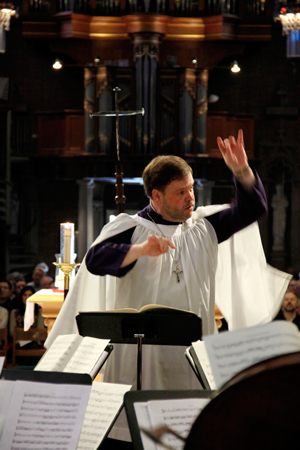 Horst Buchholz is Director of Sacred Music at the Cathedral Basilica of St. Louis and the Archdiocese of St. Louis, as well as Artistic Director of ProArte Saint Louis. Prior to coming to St. Louis, Dr. Buchholz had served as Organist and Choirmaster at the Cathedral Basilica of the Immaculate Conception in Denver, Colorado and Trinity Cathedral in Cleveland.
Horst Buchholz is Director of Sacred Music at the Cathedral Basilica of St. Louis and the Archdiocese of St. Louis, as well as Artistic Director of ProArte Saint Louis. Prior to coming to St. Louis, Dr. Buchholz had served as Organist and Choirmaster at the Cathedral Basilica of the Immaculate Conception in Denver, Colorado and Trinity Cathedral in Cleveland.
Buchholz studied organ and sacred music in his native Germany at the Berlin College of Church Music and graduated with degrees and diplomas in Church Music and Music Pedagogy from the University of Arts in Berlin. His organ teachers have included Heinz Lohmann, Peter Wackwitz, and Rudolf Heinemann. Among his conducting teachers were Martin Behrmann, Uwe Gronostay, and Erich Bergel.
After receiving his teaching certificate in Music Theory and Composition from the University of Arts in Berlin in 1989, Dr. Buchholz continued his post-graduate studies in the United States, where he received his Doctor of Music degree in conducting from the Indiana University School of Music. As a chorus member and assistant with the Berlin Philharmonic Chorus, he worked with and performed under such eminent maestros as Claudio Abbado, Seiji Ozawa, Kurt Masur, Lorin Maazel, and Herbert von Karajan.
Dr. Buchholz’s other accolades and accomplishments include his service as Music Director of the Denver Philharmonic Orchestra, organist and guest conductor appearances with the Colorado Symphony, and Opera Colorado, as well as with orchestras and operas in Mexico, Japan, Korea, and several European countries. He has performed in major cathedrals and concert halls around the world. In 2009, The Denver Philharmonic named him Conductor Laureate.
As a music educator, Dr. Buchholz has served as a member of the organ faculty at Cleveland State University; Associate Professor of Music and Director of Schola Cantorum at St. John Vianney Seminary (Denver); Assistant Professor of Conducting, Director of Orchestral Studies, and faculty member of organ and church music at Lamont School of Music at the University of Denver.
Dr. Buchholz is married to the soprano Dr. MeeAe Cecilia Nam, who is currently on the faculty of Eastern Michigan University, and will also be on the faculty at this year’s Colloquium.
Mary Ann Carr Wilson
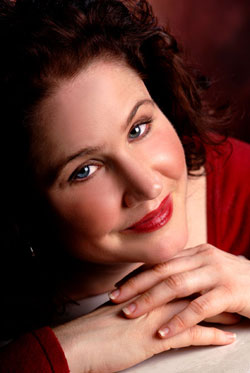 Soprano Mary Ann Carr Wilson will present a breakout session on Working with Young Choristers.
Soprano Mary Ann Carr Wilson will present a breakout session on Working with Young Choristers.
Having trained under experts in Gregorian chant and Renaissance music and having performed in several early music ensembles, Mary Ann served as Music at three different parishes in the San Diego diocese over a of twenty years. In 2019, Mary Ann founded a new apostolate, “Canticle”, where she now focuses on teaching others in the U.S. and Mexico about her love for sacred music, particularly in programs for children.
She directs the premiere youth schola for Canticle, the Jubilate Deo Choir, comprised of forty young Catholics who study and pray sacred music in the Catholic tradition. Mary Ann has been a pioneer of a children’s program called Chant Camp, a week-long fun and immersive experience of sacred music and liturgical catechesis.
Professional collaborations in the area of sacred music include CMAA (Faculty and Board Member), Benedict XVI Institute, and ChantWorks.
Archbishop Salvatore J. Cordileone
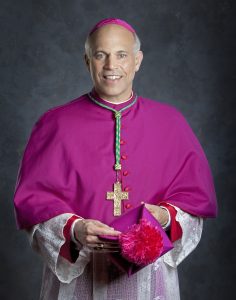 Most Reverend Salvatore J. Cordileone, Archbishop of San Francisco will give a plenary talk on Tuesday, June 22.
Most Reverend Salvatore J. Cordileone, Archbishop of San Francisco will give a plenary talk on Tuesday, June 22.
Archbishop Salvatore J. Cordileone was born in San Diego, California on June 5, 1956. He attended public school through 12th grade and earned his B.A. in philosophy from the University of San Diego in 1978. He earned a second bachelor’s degree in sacred theology from the Pontifical Gregorian University in 1981. Archbishop Cordileone was ordained to the priesthood on July 9, 1982. He continued his studies at Gregorian University from 1985-89, earning a doctorate in canon law.
The Archbishop was appointed Judicial Vicar for the Diocese of San Diego in 1990 and served as an assistant to the Supreme Tribunal of the Apostolic Signatura from 1995-2002. On July 5, 2002, Pope John Paul II appointed him the Auxiliary Bishop of the Diocese of San Diego, where he served until his appointment as Bishop of Oakland on March 23, 2009. On July 27, 2012, Pope Benedict XVI appointed him as the ninth Archbishop of San Francisco. He was installed on October 4, 2012.
Archbishop Cordileone serves as Chairman of the United States Conference of Catholic Bishops (USCCB) Committee on Laity, Marriage, Family Life and Youth and is also a member of the Administrative Committee of the USCCB and a member of the USCCB Committee for Canonical Affairs and Church Governance. He was recently appointed to serve as a member of the USCCB’s Ad Hoc Committee Against Racism. He was formerly chairman of the USCCB Subcommittee for the Promotion and Defense of Marriage, and was a member of the Ad Hoc Committee on Religious Liberty. The Archbishop serves on a number of boards, including Catholic Benefits Association/Catholic Insurance Company, Courage, Cross Catholic Outreach, and the Governing Board of the International Theological Institute, in Trumau, Austria.
Dr. Jennifer Donelson-Nowicka
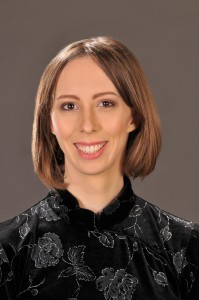 Jennifer Donelson-Nowicka will present a breakout session on Mastering Mocquereau’s Method.
Jennifer Donelson-Nowicka will present a breakout session on Mastering Mocquereau’s Method.
Jennifer Donelson-Nowicka is an associate professor and the director of sacred music at St. Joseph’s Seminary (Dunwoodie) in New York, where she also teaches sacred music courses in the St. Cecilia Academy for Pastoral Musicians. She has co-edited Mystic Modern: The Music, Thought, and Legacy of Charles Tournemire, published by the Church Music Association of America (CMAA). Her publications also include articles in the New Catholic Encyclopedia, Sacred Music, Antiphon: A Journal for Liturgical Renewal, the proceedings of the Gregorian Institute of Canada, the Fellowship of Catholic Scholars Quarterly, the Adoremus Bulletin, and Liturgy in the Twenty-First Century (Bloomsbury/T&T Clark). She was the sometime president and is currently a board member of the Society for Catholic Liturgy, serves on the board of the CMAA, is the managing editor of the CMAA’s journal Sacred Music, and serves on the Archdiocese of New York Music Commission.
As academic liaison of the CMAA, she has organized and presented papers at several academic conferences on Charles Tournemire, the work of Msgr. Richard Schuler, and the role of Gregorian chant in pastoral ministry and religious education; she was a co-organizer of the Sacra Liturgia USA 2015 conference in New York, and presented papers at the Sacra Liturgia conferences in New York, London, and Milan. Donelson-Nowicka was recently named as a Consultant to the USCCB’s Committee on Divine Worship. Donelson-Nowicka received her DMA in piano performance at the University of Nebraska-Lincoln, where she studied piano with Paul Barnes, Mark Clinton, and Ann Chang in addition to her organ studies with Quentin Faulkner. She received her undergraduate degree in vocal music education and North Dakota State University, where she studied piano with Dr. Robert Groves and conducting with Dr. JoAnn Miller.
Having studied Gregorian chant at the Catholic University of America and the Abbey of St. Peter in Solesmes, for six years Donelson-Nowicka served as a co-organizer of the Musica Sacra Florida Gregorian Chant Conference, and has given chant workshops in dioceses, parishes, and monasteries across the U.S. and Europe.
She is a regular member of the faculty at the Church Music Association of America’s annual Sacred Music Colloquium. Before coming to Dunwoodie, Dr. Donelson-Nowicka served on the faculty at St. Gregory the Great Seminary in the diocese of Lincoln, Nebraska, and at Nova Southeastern University in Fort Lauderdale, where she taught music theory, music history, piano, and directed the university chorale. As a choral conductor, Donelson-Nowicka has directed collegiate, semi-professional, amateur, monastic, and children’s choirs. She currently directs the Schola Cantorum of St. Joseph’s Seminary and the Metropolitan Catholic Chorale. She also regularly teaches Gregorian chant to the contemplative sisters at the Monastery of St. Edith Stein in Borough Park, Brooklyn (Servants of the Lord and the Virgin of Matará [SSVM]), and has also given extended workshops to the Benedictine monks of Silverstream Priory in Ireland (County Meath) and the Benedictine nuns of Priorij Nazareth Tegelen in the Netherlands.
Additionally, she teaches chant to children using the Ward Method at the Colm Cille Club (Pelham, NY) and Immaculate Conception Children’s Schola Cantorum (Sleepy Hollow), and she recently joined the faculty as a music teacher at the Cardinal Kung Academy in Stamford, Connecticut. Dr. Donelson-Nowicka is currently working on a project to adapt the Gregorian chants of the Mass proper for the Spanish language. She also co-hosts a weekly podcast with Peter Carter entitled “Square Notes: The Sacred Music Podcast.”
Joseph Dyer
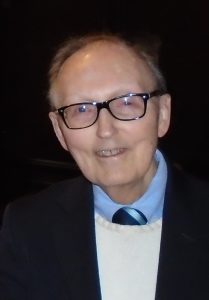 Joseph Dyer will present a breakout on Singing the Scriptures: Cantillation of the Latin Epistle and Gospel in the Medieval Mass.
Joseph Dyer will present a breakout on Singing the Scriptures: Cantillation of the Latin Epistle and Gospel in the Medieval Mass.
Joseph Dyer received his Ph.D. in music history from Boston University with a dissertation on Old Roman Chant. He taught music history at the University of Massachusetts Boston until his retirement in 2001.
He has written articles, book chapters and encyclopedia entries on chant and liturgy in Late Antiquity and the Middle Ages (especially Rome), psalmody, monasticism, performance practice, medieval music theory, and music in medieval intellectual life.
He recently published The Scientia artis musice of Hélie Salomon: Teaching Music in the Late Thirteenth Century (2018), an edition of a chant treatise with translation and commentary. His article “Theories of Origin and Survival of Old Roman Chant” appeared in Études Grégoriennes last year.
Forthcoming in 2021 is a monograph entitled Readers and Hearers of the Word: Cantillation of Scripture in the Medieval Liturgy. He has also had a parallel career as organist and director of music, serving Catholic, Methodist, Anglican, Lutheran, and Congregational churches. His organ teachers have included Harry Wilkinson, Alec Wyton, and Max Miller (Boston University).
He is a Fellow of the Royal School of Church Music.
Mario Esmildo
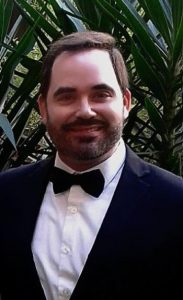 Mario Esmildo will present a breakout on The Proper of the Mass in Spanish.
Mario Esmildo will present a breakout on The Proper of the Mass in Spanish.
Mario Esmildo is a pianist and the titular organist of the Salesian Pontifical University (UPS) in Rome. He began his musical studies at the Conservatory of Music of Manzanillo in Cuba. Subsequently, he obtained a Bachelor of Music in Music Theory at the Conservatory of Music Padre Esteban Salas in Santiago de Cuba.
In 1998, Mario was chosen to be the organist for the Coronation Mass of Our Lady of Charity, presided by Pope St. John Paul II during his apostolic visit to Cuba. In 2004, he continued his studies in the University of Chile, where he obtained a Licentiate of Arts in Music Theory. Additionally, he became the titular organist of both the Cathedral of Santiago and the Basilica of Our Lady of Mercy, of the Mercedarian Friars from 2007 to 2014. He taught piano and Music History at the Salesian Catholic University in Santiago of Chile.
Mario is a frequent speaker at the Monastic Federation of Spain in the Basque Country and the province of Burgos, where he often lectures on Sacred Music with a focus on Gregorian Semiology. He obtained an additional Bachelor’s in Music and a master’s degree in Musicology at the Pontifical Institute of Sacred Music (PIMS) in Rome while also pursuing another master’s degree in Music and Liturgy at the Pontifical Athenaeum of Sant ‘Anselmo (Anselmianum). He served as the titular organist of the Basilica of Santa Maria Ausiliatrice in Rome from 2014 to 2019, and at the Church of Sant ’Ivo alla Sapienza in Rome as organist and musical director from 2017 to 2019.
David Hughes
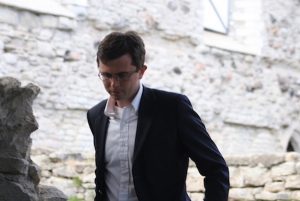 David Hughes will present a session on Preparation of Music Editions.
David Hughes will present a session on Preparation of Music Editions.
He is a composer, conductor, and organist who is in international demand as a recitalist and an instructor of Gregorian chant. Hughes is currently Organist & Choirmaster at St. Patrick’s Parish & Oratory in Waterbury, Connecticut. He served for thirteen years as Organist & Choirmaster at St. Mary’s Church in Norwalk, Connecticut, where he developed a program of seven choirs, including the professional St. Mary’s Schola Cantorum, the volunteer St. Mary’s Choir, and the St. Mary’s Student Schola, a comprehensive program of musical education for children.
He directs Viri Galilæi, an ensemble of men from the tristate New York area who gather weekly to sing Vespers and medieval polyphony from facsimiles of original manuscripts. Hughes is Director of Music at St. John Fisher Seminary in Stamford, Connecticut, and serves as a consultant to several parishes in Connecticut looking to expand their musical programs.
He is Director of Music for the Roman Forum’s annual two-week Summer Symposium at Lake Garda in Italy, where he directs a choir for daily Masses, a large volunteer choir for nightly Vespers, and coordinates performances and recitals with local groups. He was named Chant Instructor for St. Benedict’s Abbey in Still River, Massachusetts, which he visits every few weeks for musical consultation with the monks.
He travels frequently to give workshops, clinics, and recitals in North America, South America, and Europe; this past season had workshops and recitals in Canada, Italy, and Ecuador. He is currently completing, with librettist Richard Munkelt, an opera based on the life of Gaius Gracchus.
Rev. Joseph Koterski, S.J.
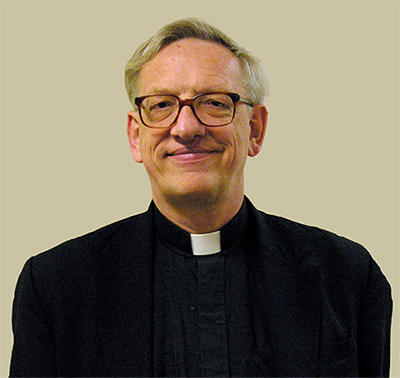 Rev. Joseph W. Koterski, S.J., is a member of the Philosophy Department at Fordham University, where he has taught since his ordination as a Catholic priest in1992.
Rev. Joseph W. Koterski, S.J., is a member of the Philosophy Department at Fordham University, where he has taught since his ordination as a Catholic priest in1992.
At Fordham he also serves as the Editor-in-Chief of International Philosophical Quarterly, as the Editor of the Fellowship of Catholic Scholars Quarterly, and as Master of Queen’s Court Residential College for Freshmen. He regularly teaches courses on natural law ethics and on medieval philosophy. He has produced videotaped lecture-courses on “Aristotle’s Ethics,” on “Natural Law and Human Nature,” and on “Biblical Wisdom Literature” for The Teaching Company, and most recently one on “St. John Paul II’s Veritatis Splendor” for the International Catholic University.
In addition to publishing various articles and book chapters, he has authored a monograph entitled An Introduction to Medieval Philosophy: Basic Concepts (Wiley-Blackwell, 2009). This past year, he co-edited with Graham Oppy a volume entitled Theism and Atheism: Opposing Viewpoints in Philosophy (Gale Cengage, 2019).
He will be presenting a plenary talk on Thursday, June 24, 2021.
Nicholas Lemme
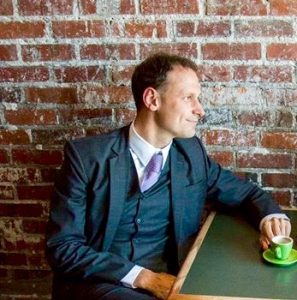 Nicholas Lemme will present a breakout session on the Chant Modes. Nicholas Lemme (ˈnik(ə)ləs ˈlemē) is a professor of Gregorian chant, sacred polyphony, and vocal instruction—a position he has held for the past nine years—at the FSSP’s Our Lady of Guadalupe Seminary in the shire that is the Diocese of Lincoln, NE.
Nicholas Lemme will present a breakout session on the Chant Modes. Nicholas Lemme (ˈnik(ə)ləs ˈlemē) is a professor of Gregorian chant, sacred polyphony, and vocal instruction—a position he has held for the past nine years—at the FSSP’s Our Lady of Guadalupe Seminary in the shire that is the Diocese of Lincoln, NE.
Additionally, he composes music, conducts the St. Francis of Assisi Chapel Choir (FSSP), and periodically provides chant instruction for diocesan religious and sacred music clinics throughout the USA.
Nicholas lives with his wife and their three young’uns amongst the cornfields of the middle west. Find more information about Nicholas, including his scores and recordings, at www.nicholaslemme.com.
Bruce Ludwick, Jr.
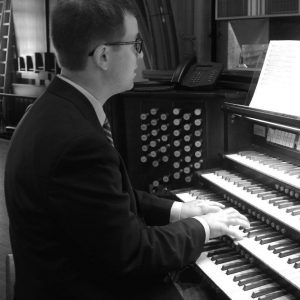 Bruce Ludwick will present a breakout session on organ techniques.
Bruce Ludwick will present a breakout session on organ techniques.
Bruce Ludwick, Jr. is Director of Music and Organist at the Cathedral of Saint Paul in Birmingham, Alabama. Mr. Ludwick manages a liturgical music program composed of the semi-professional Cathedral Choir, Men’s Schola, Ladies’ Schola, Childrens’ Schola Cantorum, and cantor corps. He organizes, plans, and provides music for all parish liturgies and serves as director of music for all diocesan liturgies at the Cathedral.
He was formerly Director of Music and Organist at St. Gabriel the Archangel Church in St. Louis, Missouri. While in Austin, Texas, he was organist at St. Mary Cathedral for the Extraordinary Form Mass and evening Mass (featuring classical guitar and organ). Ludwick has served Roman Catholic, Disciples of Christ, Episcopalian, and Church of the Brethren congregations in Missouri, Texas, West Virginia, and Pennsylvania, and has concertized in these states as well.
Ludwick earned the Master of Music in Organ Performance with Emphasis in Sacred Music at the University of Texas at Austin where he studied with the late Gerre Hancock, Organist and Master of the Choristers Emeritus, St. Thomas Church, 5th Avenue. He earned the Bachelor of Music in Organ Performance and Music Education from West Virginia University as a student of William Haller. Other organ study was with the late David Craighead and Alan Lewis; his conducting study was with Kathleen Shannon.
Ludwick was faculty for the 2011 and 2013 Musica Sacra St. Louis conferences, and served as conference organist for the same gathering in 2012. He was organist for the 2011 priestly ordinations of the Archdiocese of St. Louis at the Cathedral-Basilica of St. Louis and the 2011 “Christmas at the Cathedral” concert series. In 2015, he was organist for the Faure Requiem at the CMAA Colloquium in Pittsburgh, Pennsylvania, and was invited back for a solo recital in 2019 on the von Beckerath organ.
Ludwick served as Sub-Dean of the Birmingham Chapter of the American Guild of Organists and in similar roles for the St. Louis chapter. He maintains membership in the Organ Historical Society, of which he was an E. Power Biggs Fellow in 2001, and the Church Music Association of America, among other professional affiliations. He is a founding member of the early music choral group Highland Consort, and maintains a special interest in Gregorian chant, early music, and children’s music for the Catholic liturgy. A native West Virginian, he lives in Birmingham with his wife, soprano Erin (Montalto) Ludwick, and sons, Joseph, Peter, Thomas, and Maximilian (Max).
Dr. William Mahrt
William Mahrt is Associate Professor and Director of Early Music Singers in the music department at Stanford University, President of the Church Music Association of America, and editor of Sacred Music, the oldest continuously published journal of music in North America.
Dr. Mahrt grew up in Washington state; after attending Gonzaga University and the University of Washington, he completed a doctorate at Stanford University in 1969. He taught at Case Western Reserve University and the Eastman School of Music, and then returned to Stanford in 1972, where he continues to teach early music.
Since 1964 he has directed the choir of St. Ann Chapel in Palo Alto, which sings Mass and Vespers in Gregorian chant on all the Sundays of the year, with masses in the polyphonic music of Renaissance masters for the holy days. His research interests include theory and performance of Medieval and Renaissance music, troubadours, Machaut, Dufay, Lasso, Dante, English Cathedrals, Gregorian chant, and Renaissance polyphony.
He has published articles on the relation of music and liturgy, and music and poetry. He frequently leads workshops in the singing of Gregorian chant and the sacred music of the Renaissance.
He will present a plenary session during the week, as well as a breakout session on the Psalm Foundation of the Propers.
Dr. Timothy McDonnell
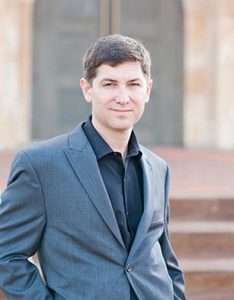 We are delighted to announce that Dr. Timothy McDonnell will be returning to the CMAA faculty for the 2021 Virtual Colloquium. He will present a breakout session on Polyphonic Mass Ordinaries for the Parish Choir.
We are delighted to announce that Dr. Timothy McDonnell will be returning to the CMAA faculty for the 2021 Virtual Colloquium. He will present a breakout session on Polyphonic Mass Ordinaries for the Parish Choir.
Widely recognized for his broad skill set and musicianship, conductor-composer Timothy McDonnell has earned a reputation for creativity and leadership on and off the podium. Dr. McDonnell has led several distinguished ensembles, including the Naples Philharmonic Orchestra, the Southwest Florida Symphony Orchestra, and the Collier County Sinfonietta, in works from across the repertoire. In 2016, McDonnell was appointed Director of Choral Activities at the Benjamin T. Rome School of Music at The Catholic University of America.
Equally at home in the orchestral and choral idioms, McDonnell’s performances have gained critical acclaim and national distinction. Dr. McDonnell is an enthusiastic musical collaborator, and his choral-orchestral partnerships include not only standard works such as the Symphony No. 9 of Beethoven and Carmina Burana, but also extend to less frequently performed masterpieces such as Mahler’s Symphony No. 2 and Franck’s Psyché. He has worked with some of the most renowned conductors in the world, including Gustavo Dudamel, Andrey Boreyko, Carlos Miguel Prieto, Cristian Macelaru, and Robert Page.
McDonnell has served as the Music Director of the Schola Nova Ensemble, Studio Lirico Opera Program, Elysium Concert Opera, the Symphonic Chorale of Southwest Florida, the Ars Laudis Festival Chorus & Orchestra, the choirs of Ave Maria University, and the North American College in Vatican City. Dr. McDonnell’s performances with University ensembles have won national recognition. In 2013 McDonnell was a finalist for the American Prize in choral conducting for his performance of Mozart’s Requiem, and in 2014 he took third place in the 2014 American Prize for his performance of Brahms’ Ein deutsches Requiem.
McDonnell’s compositions and arrangements have been performed by leading and regional ensembles, including the Chamber Orchestra of Philadelphia, the Yale Repertory Orchestra, and the Southwest Florida Symphony Orchestra. Mr. McDonnell was a finalist for the 2014 American Prize in composition. McDonnell has prepared numerous performance editions, including sacred works by Antonio Caldara, and a new translation of Haydn’s The Creation. McDonnell has cultivated a sub-specialty in music for chamber ensemble drawn from every era. His arrangements of works by Gustav Mahler, Lehár, Bruckner, and Sibelius have increased the chamber orchestra repertory, and have been praised for their innovative use of limited instrumental forces.
Dr. MeeAe Cecilia Nam
Dr. MeeAe Cecilia Nam will present a session on Vocal Pedagogy.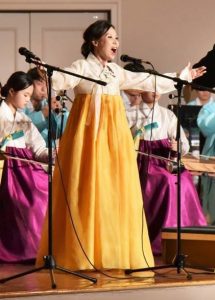
Soprano MeeAe Cecilia Nam has extensive performance experience as soloist in recitals, oratorio, sacred music, chamber and orchestral concerts, and operas in the United States, Germany, Austria and South Korea. She has gained a fine reputation for her musical interpretations with her numerous concerts in recent years.
Dr. Nam gained a Doctor of Musical Arts degree from the University of Colorado at Boulder. Before joining the faculty of Music at Eastern Michigan University in 2009 she taught voice at the Metropolitan State University of Denver, where she served as chair of the vocal studies program for 5 years. She also founded and directed the annual Vocal Arts Competition for Young Colorado Musicians.
Since 2000 with her husband, Dr. Horst Buchholz, organist and conductor, she has given numerous recitals for organ and voice in Germany and Austria. She has collaborated with world-class musicians including Krista Bennion Feeney, Joseph Robinson, James Buswell and sung under the direction of Horst Buchholz, Joseph Dorfman, Adam Flatt, Michael Christie and Martin Isepp among others. Her excellent understanding of works by Mozart has led her to perform many of his sacred works including Exsultate jubilate, Grand Mass in C minor, and the Requiem performed with the members of the Mozarteum Orchestra in the 250th anniversary year of Mozart’s birth in Salzburg, Austria. She has given many performances of works such as Bach’s Cantatas, Easter Oratorio, Handel’s Messiah, Haydn’s Masses, Schubert’s Masses, Gounod’s St. Cecilia Mass, Mahler’s Gloria, Vaughan Williams’ Dona Nobis Pacem and Orff’s Carmina Burana.
Due to her great interest in contemporary music she has premiered, in her region, many living composers’ works including Joseph Dorfman’s one act opera Shulamith for soprano and percussion, Voice of River Han by David Mullikin (won distinguished composer by MTNA), James Mobberly’s Words of Love, Georgy Kurtag’s Kafka Fragmente for soprano and violin, Tan Dun’s Silkroad for soprano and percussion.
Dr. Nam is a frequent guest recitalist and lecturer for the Music Teachers National Association and recently gave presentations at the conferences of the College Music Society and the American Liszt Society. She served as a faculty member and performer at the Vianden International Summer Festival and school in Luxembourg in 2011. As lecturer and vocal clinician Dr. Nam frequently travels throughout the United States, Europe and South Korea giving vocal workshops and master classes at Universities. Her students have been and are active in national and international competitions and music festivals. Recently Dr. Nam appeared as advisor and guest artist clinician in the first annual Seoul International Opera Festival, where three of her students performed lead roles in Mozart’s “Magic Flute.”
She is currently undertaking a project of a CD publication of “Forgotten Songs of Théodore Gouvy”. She has been giving a lecture recital of Gouvy’s songs at various places including the Hanns Eisler Musik-Hochschule in Berlin, Eastern Michigan University, Kent State University and the University of Tennessee, Knoxville and also during the American Liszt Society Conference in Portland, Oregon.
“Soprano Mee-Ae Nam has a voice of surprising power for so petite a frame, accurate in intonation, well-supported in delivery and with sly bits of interpretation thrown in.” “A clear, well-supported voice that moves easily in its registers. …..extra care in projecting words.” — Glenn Giffin, Denver Post
“…Leicht und makellos in den Höhen, dramatisch im Ausdruck füllte sie mühelos den akustisch eher schwierigen Kirchenraum. In der Mozartarie… ließ sie großartig perlende Koloraturen höhen..” [Light and flawless in the high passages, dramatic in expression, she effortlessly filled the formerly difficult church space. In the Mozart aria… she made glistening coloratura arise] — Max Götz, Passauer Neue Presse, Waldkirchen, Germany
Rev. Robert Pasley
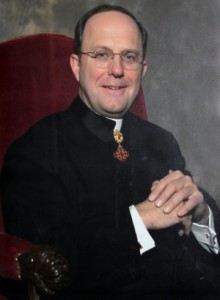 Father Robert C. Pasley, KCHS, is the Chaplain of the Church Music Association of America and has been a member of the CMAA since his ordination.
Father Robert C. Pasley, KCHS, is the Chaplain of the Church Music Association of America and has been a member of the CMAA since his ordination.
He is a priest of the Diocese of Camden, New Jersey. Fr. Pasley will share Spiritual Reflections and offer Mass for the deceased members of the CMAA during the CMAA’s Virtual Colloquium. Because of his association with Msgr. Richard Schuler, he was introduced to the Sacred Music Colloquium and has attended most of the colloquia held since their foundation in 1990.
During the tenure of Msgr. Schuler, he was privileged to be the celebrant at orchestral masses at St. Agnes Church in St. Paul, Minnesota. He also serves on the faculty at the Colloquium and has served as Vice President and a member of the board of directors of Sacred Music magazine.
Born on November 20, 1955 in Woodbury, N.J., Father Pasley received a B.A. in Philosophy from St. Charles Borromeo Seminary, Philadelphia, an M.A. in Dogmatic Theology from Mount Saint Mary’s Seminary, Emmitsburg, and an M.A. in Education from Seton Hall University. He was ordained by the Most Reverend George H. Guilfoyle in 1982. After ordination, Father Pasley was stationed as an assistant priest in parishes throughout the diocese. In 1992, he was assigned to teach high school. He taught for eight years and during that time became Vice Principal for Academics at Camden Catholic High School.
On October 13, 2000, he was appointed Rector, by Bishop Nicholas DiMarzio, of the newly established Tridentine-rite Parish of Mater Ecclesiae, Berlin, N.J. (materlatin.org). Mater Ecclesiae was the first diocesan-run Extraordinary Form parish in the United States. Mater Ecclesiae has a full music program of chant, polyphonic masses, and music based on the principles given by the Church for sacred music.
Along with Dr. Timothy McDonnell, Fr. Pasley established the annual Mass of Thanksgiving on the Feast of the Assumption. This Mass, a grand event for the Delaware Valley, features some of the greatest orchestral masses ever composed for the sacred liturgy. Some mass settings that have been used for the Assumption Mass are Haydn’s Lord Nelson Mass, the Missa Septem Dolorum of Carl H. Biber, Schubert’s Mass in Bb Major, and Mozart’s Missa Brevis in C Major.
Finally, Father Pasley is a Knight Commander of the Equestrian Order of the Holy Sepulchre of Jerusalem and a 4th Degree Knight of Columbus.
Dr. Edward Schaefer
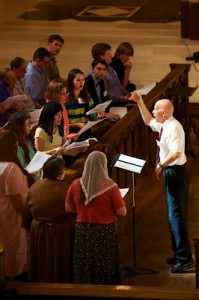 Edward Schaefer will present a breakout session on Beginning Semiology.
Edward Schaefer will present a breakout session on Beginning Semiology.
Dr. Schaefer is professor of music and associate dean of the College of the Arts at the University of Florida (UF) in Gainesville, FL. He is also the director the Florida Schola Cantorum, a group of dedicated singers of chant and polyphony and a deacon for the Diocese of Orlando. Dr. Schaefer’s area of study focuses primarily on semiology, the study of ancient musical notation, and its impact on contemporary performance of chant.
In addition, he is an advocate for the improvement of education through technology. Combining these two interests, he has taught online courses since 2001. Currently, he is teaching a professional development seminar to music professionals across the country on the subject of semiology.
He is currently working with the Digital Worlds Institute at UF and L’École de Chant Grégorien du Choeur Grégorien de Paris to develop interactive software for the learning of the basic vocabulary and grammar of the notations of St-Gall and Laon.
Dr. Schaefer is the translator of Daniel Saulnier’s Les Modes Grégoriens and Le Chant Grégorien, both published by Solesmes. He is also the author of Catholic Music Through the Ages, (Hillenbrand Books), and author/editor of Missa Cantata: A Notated Sacramentary, Evangélia Cantáta: A Notated Book of Gospels, and numerous articles on various aspects of sacred music.
Dr. Lucas Tappan
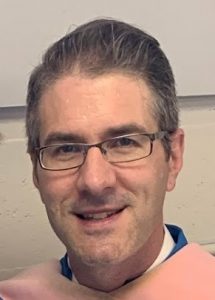 Dr. Lucas Tappan again joins us for the Virtual Colloquium faculty and will be presenting a breakout session on Vocal Training of the Young Voice.
Dr. Lucas Tappan again joins us for the Virtual Colloquium faculty and will be presenting a breakout session on Vocal Training of the Young Voice.
He graduated in 2004 from Benedictine College in Atchison, KS—where he studied organ with Fr. Blaine Schultz, OSB, and Dr. Ruth Krusemark—earning degrees in Theology and Music. He earned his Master of Music in Church Music (organ performance) in 2009 from the University of Kansas and in 2014 was granted a Doctorate of Musical Arts in Church Music (choral conducting) from the same institution. His teachers included Michael Bauer (organ), James Higdon (organ), and Paul Tucker (choral conducting).
In 2008, Dr. Tappan arrived at Most Pure Heart of Mary Catholic Church in Topeka, KS, and three years later founded the Most Pure Heart of Mary Schola Cantorum, an after-school choir program in the tradition of the EUROPEAN CATHEDRAL CHOIR SCHOOL. In 2012, he was privileged to spend six weeks observing the training of choristers at the Madeleine Choir School at the Cathedral of the Madeleine in Salt Lake City, Utah—an experience that has greatly shaped the way he trains choristers.
In January of 2016, the MPHM Schola Cantorum traveled to Rome to sing at St. Peter’s Basilica—joining the Sistine Chapel Choir—alongside several other children’s choirs from the Americas and Europe for the first CHILDREN’S FESTIVAL FOR EPIPHANY, sponsored by the Fondazione Pro Musica e Arte Sacra. Dr. Tappan lives in Kansas with his wife and four children.
Dr. Susan Treacy
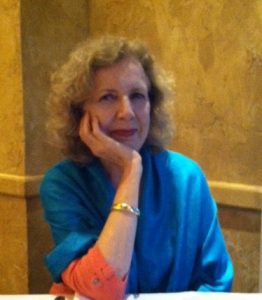 Dr. Susan Treacy, a member-at-large on the CMAA’s board of directors, will present a breakout session on: Hymnody.
Dr. Susan Treacy, a member-at-large on the CMAA’s board of directors, will present a breakout session on: Hymnody.
Susan Treacy, Ph.D., is Professor of Music Emerita at Ave Maria University, from which she retired in July of 2019. Prior to AMU, she taught at Franciscan University of Steubenville, Luther College, and Emory University, where she was a Mellon Faculty Fellow in the Humanities. Dr. Treacy holds the Ph.D. in historical musicology from the University of North Texas; her B.Mus. and M.Mus. degrees are from Oberlin Conservatory and the Manhattan School of Music.
Her main research interests are in Catholic liturgical music and in English devotional song of the sixteenth-eighteenth centuries. Recent activities have included the release of a compact disc (Chants of Palm Sunday and Eastertide, with the AMU Scholæ Gregorianæ), a chapter, “Gregorian Chant,” in Alcuin Reid, ed., T&T Clark Companion to Liturgy (London, 2016), 239-57, and “Joseph Bonnet as a Catalyst in the Early Twentieth-Century Gregorian Chant Revival,” in Donelson and Schloesser, eds., Mystic Modern: The Music, Thought, and Legacy of Charles Tournemire (Richmond, VA: 2014), 11-21.
In addition to her scholarly writing, Dr. Treacy is a regular contributor to the Saint Austin Review (StAR) with her column Musica Donum Dei. She was on the editorial committee of The Adoremus Hymnal (1997) and is currently on the Board of Directors of the Church Music Association of America (CMAA).
For 2009-2018 Dr. Treacy was co-organizer and organizer of the Musica Sacra Florida Gregorian Chant Conference, which drew chant enthusiasts from all over Florida and beyond, and at which she gave workshops on Gregorian chironomy, square notation, and Church documents on sacred music.
Her Gregorian chaook—A Plain and Easy Int textbntroduction Gregorian Chant (Cantica Nova Publications)—has been lauded as “the best instant resource for Gregorian chant available in English” (Bruce Ludwick, Director of Music at Saint Paul Cathedral, Birmingham, AL).
At Ave Maria University Dr. Treacy taught music history, art song literature, sacred music courses, and Gregorian chant; in addition, she directed the Women’s Schola Gregoriana and the Men’s Schola Gregoriana.
Breakout Sessions
Breakout sessions will be offered Monday – Friday on a range of various topics. Complete listing of Breakout Sessions, including descriptions (forthcoming)
Scholarships
The CMAA is dependent on donations for scholarships. If you are interested in sponsoring a musician, priest or seminarian’s attendance, please write to us at programs@musicasacra.com or make a donation to our Annual Fund. No amount is too small. All scholarship donations are applied directly to scholarships. If making a donation to the Annual Fund, you can also specify that your donation is to be used for scholarships. To make a donation to the Annual Fund, please use this form or make an online donation:
Scholarship Assistance may be available for persons of limited means. To apply for a CMAA Colloquium scholarship, please send us an email at programs@musicasacra.com describing your financial need and interest in the program as soon as possible.
REGISTRATION
REGISTER ONLINE NOW. All registrations must be made online, using either a credit card or paypal. Choose from the various options on our online shop page. Basic Registration: Allows entry free of charge to all Spiritual Reflections by our chaplain, Rev. Robert Pasley and the daily Night Prayer. Workshop Registrations: Choose the days you would like to attend and register for each day at a cost of $30/day or $80 for a full registration. Please note that the maximum for all five days should be $80. Just choose all the days you want to attend. Spanish Sessions Registrations: On Wednesday, June 23, 2021, two extra sessions will be offered on 1) The Propers of the Mass, and 2) Sacrosanctum Concilium. Both sessions will be completely in Spanish. These sessions are offered free of charge. CMAA Member Meeting: On Monday, June 21, 2021, the CMAA will hold its annual Member Meeting. Please register if you are a current member and would like to attend. If you are uncertain about your membership status, please contact us at programs@musicasacra.com.
Cancellation: No refunds of registration fees will be offered. Please note that all participants are expected to adhere to our CMAA Code of Conduct.
Join the CMAA
Helpful Links
Curious about the Sacred Music from previous Colloquia? Listen to some of the sound files from previous years at this website: http://music.dierschow.com/Colloquium/ Or watch this video documentary about the Colloquium when it was held at Loyola University in 2009 (50 min.) Download the free Zoom Client for Meetings app: DOWNLOAD ZOOM
